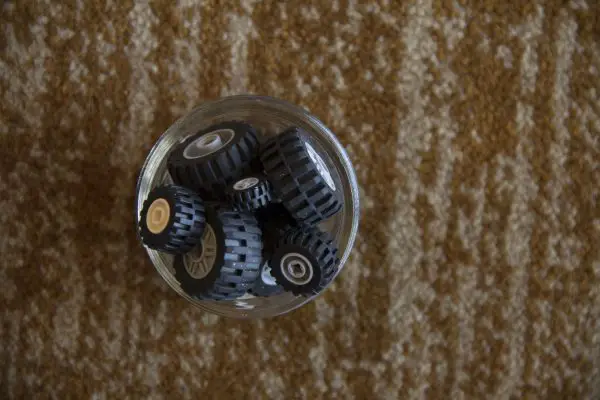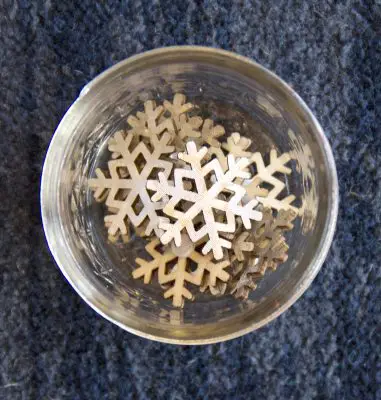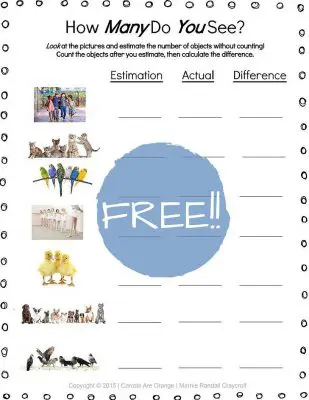Early math estimation is fascinating.
Have you ever won a “Guess how many Xs are in the jar?”
Yeah, me neither. Still fun, though, right?
One of my favorite activities to present at a party with kids is a “Guess How Many?” jar. The winner gets all. The stakes are ridiculously high.

Estimate in Math
I recently brought one of these jars to a Halloween party. The kids love “guessing”. I explained that they don’t have to “guess” randomly but that it is possible to “estimate” the answer.
These kids were fascinated with this concept. Then their teacher demonstrated her approach to estimating the amount in the jar. Don’t tell the kids, but she actually estimated EXACTLY the amount.
Did I let her walk away with the prized jar of candy corn?
What do you think?

What Does it Mean to Estimate in Math?
Estimation is a skill that occurs naturally but one that needs to be nurtured and massaged as the child’s brain develops. Think: use or lose it. Estimating a quantity weaves in mental computations that require problem-solving and critical thinking.
Math estimation can be introduced to children concretely at a young age. Children expand on the concept in elementary school between 3rd and 5th grade.

Questions to Ask in Earth Math Estimation Activities
- How many bells are in this jar?
- There are 6 bells in this jar. How many do you think are in this jar?
- Were there more or fewer bells in the second jar?
- Using a jar of mixed silver and bluebells: which color is less?

Early Math Estimation Resources
- Learn Why Estimation is Important to Development in the Early Years is a fairly academic article filled with loads of resourceful information if you’re hungry for it.
- Ridiculously Creative and Effective Ways to Teach Estimation to Preschoolers can be found on Teach Preschool’s blog. She has unique and fun ways to teach early math estimation to preschoolers.
- Developing Estimation Skills in Primary Grades is an easy-to-read overview of the importance of early math estimation skills and specific ideas on how to develop and nurture these skills with young children.

Happy learning!
Marnie
